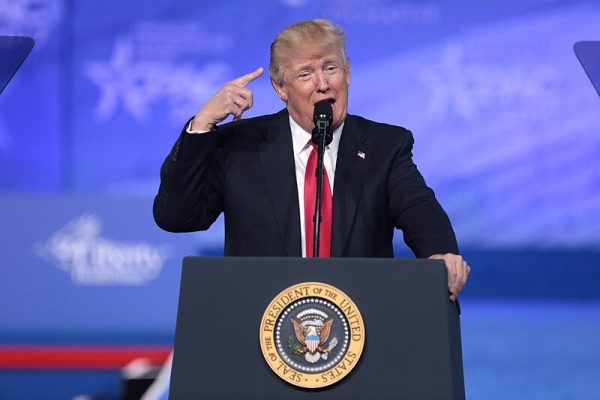Joe Biden’s America: A Critique of His First 100 Days
A report and analysis of Joe Biden’s actions and policies during his first 100 days in office and how they align with his campaign promises.
A rolled up New York Times print newspaper with a photo of President Biden displays the headline “Expelled Minors Sent to Mexico Instead of Home.” One of Biden’s most prominent promises was no more deportations for 100 days. However, Biden’s executive order was promptly blocked by a federal judge. The U.S. immigration system remains the same as it was under the Trump administration.
The first 100 days of a president’s term is an important milestone in politics that sets a precedent for their remaining years in office. A president’s goals and competency is outlined by the actions their administration takes during this 100-day period. One of the most highly regarded presidents, Franklin D. Roosevelt, passed fifteen bills through Congress which revamped the American society and economy, creating his shining legacy, within this time frame. On the other hand, Donald Trump objectively had one of the worst first 100 days and subsequently worst terms in office. Many politicians include a 100-day plan as part of their campaign platform with countless promises they intend to fulfill, and presidents are judged based on if and how well they fulfilled them. President Joseph R. Biden released a comprehensive and diverse plan for action regarding issues ranging from COVID-19, the economy, immigration, and climate.
This article will analyze Biden’s actions on key issues listed on his campaign platform. Each section will be graded in terms of how well Biden deals with the issue alongside how well he fulfilled his promises.
COVID-19 Pandemic: A
President Biden outlined his comprehensive COVID-19 plan as the key reason to vote for him throughout his campaign. On his platform, he listed his priorities as “Listening to science, ensuring public health decisions are informed by public health professionals, and restoring trust, transparency, common purpose, and accountability to our government.”
Following his election, Biden started preparing to enact his COVID-19 plan by drafting executive orders, collaborating with government health agencies, and making several promises for his first 100 days.
His three main pledges were to rejoin the WHO, mandate masks on federal property, and vaccinate 100 million Americans. On his first day in office, Biden checked two of these off his list: He retracted Trump’s withdrawal from the WHO and signed an executive order mandating masks on federal property.
He made his most notable promise, to vaccinate 100 million Americans, in early December 2020, six days before the first vaccine was given in the U.S. At the time, Biden’s goal was a gargantuan and seemingly impossible task; however, he fulfilled his promise on March 19th, 2021 (42 days before the 100 day deadline). Biden and his administration used a combination of measures ranging from executive orders to creating mobile vaccination centers to achieve this goal. “Using the power given to a President under the Defense Production Act, we expedited critical materials in vaccine production, such as equipment, machinery, and supplies. We worked with vaccine manufacturers to speed up the delivery of millions more doses and brokered a historic manufacturing partnership between competing companies who put patriotism and public health first,” said President Biden in a speech.
On March 25th, 2021, Biden announced a new goal of 200 million vaccinations by the end of his first 100 days, and the U.S. is on track to reach Biden’s new goal with 150 million vaccines being distributed as of April 7th, 2021.
For his success with vaccine production and distribution, Joe Biden receives an A.
COVID Relief: B+
The start of the pandemic was a trying time for many who were suddenly out of a job and unable to pay rent or pay their bills. Thousands of families faced evictions and ballooning debt as the unemployment rate peaked at 14.8% in April 2020, the highest since the Great Depression. The effects of the economic shutdown can still be felt today; the majority of Americans are in worse financial shape than before the pandemic. There has been a sharp increase in personal debt and people applying for unemployment benefits. In order to account for the needs of Americans during this period of economic turmoil, Biden made it his first priority to pass a third coronavirus relief package which would include a third stimulus check.
He initially promised voters $2,000 checks, but amended that amount to only $1,400 checks in his proposed stimulus plan (American Rescue Plan), released on January 14th, 2021. His stimulus plan also included funds for rental assistance, state and local aid, and vaccine distribution.
On March 19th, 2021, Biden signed a 1.9 trillion Covid stimulus package which included personal checks, unemployment benefits, and vaccine aid.
Biden receives a B+ for passing a diminished stimulus package.
Climate: B
In an attempt to shore up his support from progressive and youth voters, Biden’s campaign exalted climate change as one of the key issues that his administration would address. Biden promised to take action to reach net zero emissions by 2050, support the Green New Deal, and to recommit to international efforts and agreements to slow atmospheric warming.
Within his first few days in office, Biden rejoined the Paris Climate Agreement. On March 26th, 2021, he invited Xi Jinping and Vladmir Putin, the leaders of China and Russia, respectively, for global climate talks. These talks aim to create a global plan to address climate change with the three largest nations. Biden also signed an executive order that stopped the construction of the Keystone Pipeline. In doing so, Biden prevented the destruction of countless ecosystems and a plethora of native lands. This move was highly popular with environmentalists and those who care about native rights, but upset the Canadian Prime Minister, Justin Trudeau who wanted to use the pipeline to deliver oil to Canada.
Biden receives a B for taking leadership on climate and rejoining the Paris Climate Agreement, but not producing substantial results.
Economy: A
Biden passed the stimulus act and with the current trajectory of vaccinations, America is due for an economic recovery. The unemployment rate has gone down while the stock market remains stable. Moreover, Biden has passed executive orders halting foreclosures and evictions in an attempt to counter the detrimental effects of the pandemic.
Biden receives an A for passing the Stimulus Act and guiding a projected economic recovery.
Immigration: D+
In order to clearly differentiate himself from former President Trump, President Biden promised that his administration would stop all deportations. However, as of March 15th, 2021, the Biden administration continues daily deportations and has deported 127,457 immigrants in total.
A large part of Biden’s proposed plan was halted by a federal judge who ordered that it would be unconstitutional to reverse several of Trump’s policies using executive orders.
Biden did reunite some detained children with their parents, but continued the use of Trump’s ICE detention camps at the US-Mexico border.
Biden ended Trump’s highly controversial muslim travel ban and halted construction of the border wall.
Biden receives a D+ for not fulfilling his main promises.
Foreign Relations: C
Joe Biden promised to restore trust with our allies and return to conventional diplomatic decision making. Although many traditional allies were relieved when Biden assumed office, they have not yet collaborated on issues such as climate, nuclear weapons, and trade.
A large concern for foreign policy was the effects of Trump’s decision to exit the Iran Nuclear Deal. Biden promised to rejoin the deal and has entered talks, but nothing material has been produced.
Biden also took a hard-line stance on Russia, reversing the Moscow-friendly liaison the Trump Administration had. He has placed sanctions on Russia for their interference in the 2016 and 2020 US Presidential Election, which resulted in Russia expelling U.S. diplomats and sanctioning eight U.S. officials.
Another key foreign relation issue is the war in the Middle East. Biden portrayed himself as a progressive, and someone who would bring radical change. He promised peace. Instead, he bombed Syria, continuing the wasteful war in the Middle East.
On the other hand, Biden started to withdraw troops from Afghanistan and announced he will have all troops removed by September 11th, 2021. After 20 years, trillions of dollars spent, and over 100,000 injured or killed Afghan civilians, Biden is ending a widely unpopular and unsuccessful war.
For his contradictory actions in the Middle East and lack of substantial action on the Iran Deal, Biden gets a C.
Carolyn Chui is an Editor-in-Chief for ‘The Science Survey.’ She enjoys writing articles on politics, business, and international relations. Carolyn...











